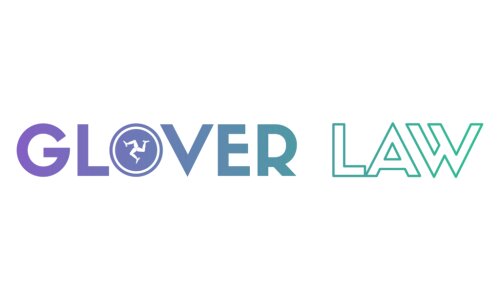Best Adoption Lawyers in Douglas
Share your needs with us, get contacted by law firms.
Free. Takes 2 min.
Free Guide to Hiring a Family Lawyer
List of the best lawyers in Douglas, Isle of Man
About Adoption Law in Douglas, Isle of Man
Adoption in Douglas, Isle of Man is a legal process that creates a new and permanent relationship between an adoptive parent and a child. The process legally transfers all parental rights and responsibilities to the adoptive parents, and the child is treated as if born to them. Adoption law in the Isle of Man is governed by the Adoption Act 1984 (as amended) and associated local regulations. The system is designed to protect the best interests of the child, ensuring that all placements are safe, stable, and in accordance with strict legal requirements.
Why You May Need a Lawyer
Seeking legal support in adoption matters in Douglas, Isle of Man is highly advisable for a smooth and compliant process. Some common reasons to consult a lawyer include:
- Understanding complex legal criteria and eligibility for adoption
- Preparing and submitting essential documentation to courts and agencies
- Representing you during hearings and dealing with unexpected challenges
- Dealing with international or inter-jurisdictional adoptions
- Protecting your rights and helping to navigate disputes with birth parents or agencies
- Clarifying the impact of adoption on inheritance, citizenship, and legal name changes
- Advising step-parents, relatives, and foster carers about their adoption rights
Local Laws Overview
The Isle of Man’s adoption laws share similarities with the United Kingdom but also have unique features. Key aspects to note include:
- Adoptions must be conducted through a registered adoption agency or the Department of Health and Social Care (DHSC)
- Applicants must be aged 21 or over. Married couples, civil partners, unmarried couples, and single applicants may be eligible
- All prospective adopters undergo thorough background checks, home studies, and assessments
- Consent from birth parents is generally required, except in certain circumstances where the court may dispense with consent in the child's best interest
- The court’s primary consideration is the child’s welfare throughout the child's life
- Following a successful application, the court will issue an Adoption Order which confers parental responsibility to the adoptive parent(s)
- Post-adoption, the child becomes a full legal member of the adoptive family, with all the associated rights and responsibilities
Frequently Asked Questions
What are the main requirements to adopt a child in Douglas, Isle of Man?
Applicants must be at least 21 years old, undergo checks and assessments, and either reside in the Isle of Man or be habitually resident. Marital status or relationship type does not disqualify applicants.
How long does the adoption process take?
Timelines vary depending on individual circumstances. The process typically takes several months and involves assessments, training, matching, and court procedures.
Do I need to be married to adopt?
No. Single people, unmarried couples, married couples, and civil partners can apply to adopt, provided they meet the eligibility criteria.
Can I adopt a relative or stepchild?
Yes. Relative or step-parent adoption is possible, but applicants must still undergo necessary checks and court procedures.
What role do birth parents play in the process?
Birth parents usually must consent to the adoption unless the court decides it is not required due to certain circumstances, such as inability to provide care or safeguarding issues.
Are overseas adoptions recognized in the Isle of Man?
Some overseas adoptions are recognized if they comply with Isle of Man law and international requirements. They often involve additional legal steps and should be discussed with a qualified lawyer.
What is a home study assessment?
A home study is an in-depth assessment by a social worker, reviewing the applicant’s background, suitability, home environment, and ability to meet a child's needs.
How is the child’s welfare considered?
The child's welfare is the paramount concern in all adoption decisions. The court and agencies focus on the child’s safety, emotional health, and best interests throughout the process.
Can adopted children obtain information about their birth family?
Adults who were adopted can apply for information about their birth family. There are procedures in place to ensure this is managed sensitively and lawfully.
Do adoptive parents need to attend court?
Yes. Prospective adopters usually need to attend a court hearing where the judge considers the adoption application and supporting reports before making an Adoption Order.
Additional Resources
Several organizations and bodies provide support and information relating to adoption in Douglas, Isle of Man:
- Isle of Man Adoption Service - The local authority’s adoption team provides advice, information, and manages the adoption process
- Department of Health and Social Care (DHSC) - Oversees the regulation and welfare aspects of adoption services
- Manx Citizens Advice Service - Offers general legal advice and guidance on adoption rights and procedures
- Law Society of the Isle of Man - Can assist in finding solicitors experienced in adoption matters
Next Steps
If you are considering adoption in Douglas, Isle of Man, or face any legal questions relating to the process, consider the following actions:
- Contact the Isle of Man Adoption Service for preliminary guidance and information packs
- Arrange an initial consultation with a local lawyer specializing in adoption law to discuss your situation and options
- Gather all personal documents, references, and any relevant legal paperwork in preparation for assessments or legal meetings
- Attend required training or information sessions as advised by the adoption service or your legal representative
- Stay informed about your rights, responsibilities, and the stages of the adoption process
Legal guidance can help ensure that the adoption process is as efficient and stress-free as possible, always keeping the best interests of the child at the forefront.
Lawzana helps you find the best lawyers and law firms in Douglas through a curated and pre-screened list of qualified legal professionals. Our platform offers rankings and detailed profiles of attorneys and law firms, allowing you to compare based on practice areas, including Adoption, experience, and client feedback.
Each profile includes a description of the firm's areas of practice, client reviews, team members and partners, year of establishment, spoken languages, office locations, contact information, social media presence, and any published articles or resources. Most firms on our platform speak English and are experienced in both local and international legal matters.
Get a quote from top-rated law firms in Douglas, Isle of Man — quickly, securely, and without unnecessary hassle.
Disclaimer:
The information provided on this page is for general informational purposes only and does not constitute legal advice. While we strive to ensure the accuracy and relevance of the content, legal information may change over time, and interpretations of the law can vary. You should always consult with a qualified legal professional for advice specific to your situation.
We disclaim all liability for actions taken or not taken based on the content of this page. If you believe any information is incorrect or outdated, please contact us, and we will review and update it where appropriate.










